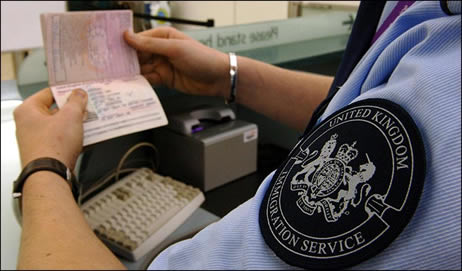The issue of dual nationals is making headlines again. As I noted last December, the ECP decision to bar dual nationals from contesting elections while allowing dual nationals living overseas to vote in elections back home created the bizarre outcome that people who don’t live in Pakistan and have no intention of ever living here can decide elections, but people who actually live here can’t contest elections. Based on the latest petition before the Supreme Court, though, it appears that it’s not all dual nationals that are being targeted, only certain ones.
According to the petitioner, former secretary of the Election Commission of Pakistan Kanwar Dilshad has said there are 35 parliamentarians with dual nationality. So why is the Supreme Court concerned about 4 MPs only? Is it coincidence that the only four out of 35 possible dual nationality holders being investigated by the Supreme Court are PPP members? Or is the Supreme Court preparing another bargaining chip to use against President Zardari?
It should also be noted that the petition in the case Syed Mehmood Akhtar Naqvi has a history of filing cases against PPP. He petitioned the Supreme Court against Waheeda Shah even though ECP had already taken notice of her case. He petitioned the Supreme Court to overrule the government’s elevation of Justice Gulzar Ahmed to the Supreme Court. He even petitioned the Supreme Court to disqualify every single one of PPP’s Sindh Assembly members in 2011.
But lets leave aside the obvious political games being played in the judiciary and look at the issue of dual nationality from a sober and rational perspective.
How many of our dual nationals are people who traveled overseas to take advantage of some of the world’s best universities, and after taking their degrees were accepted in positions with world class companies where they obtained top level skills and experience that they then brought back home to Pakistan?
Pakistan suffers more than any other country from what is known as ‘brain drain’ – the flight of highly skilled people to countries with more and better paying jobs. Often people are able to get these jobs by starting on a student visa, then getting a temporary work visa after their degree, and then residency or citizenship is often required. They’re not swearing allegiance to some other country, they’re just following the rules so that they can advance in their training and career. Do we really want to send the message that if you make the sacrifice of living overseas to get an education and build expertise in your field…don’t come back?
It is also important to view the issue of dual nationality in a historical perspective. For most of the past 35 years, Pakistan suffered under one military dictatorship or another. Gen. Zia especially treated his political opponents brutally and without mercy. Martial Law Regulation No 53 left an indelible stain on the nation and many families were forced to look for security abroad.
Even during brief periods of democratic rule, politics was a high stakes game that ruined lives. We should remember that before the NRO was spun into a ‘get Zardari’ campaign, it was considered as a way to deal with the fact that the judiciary had become a weapon used against opponents. Just as the Supreme Court seems interested only in 4 cases of dual nationals, it seems to have forgotten that the NRO affected not only Zardari’s case but 8,000 others.
And the dual nationality issue affects every party and political ideology also. Just because the PPP is the only party being targeted by the Supreme Court, we should remember that even Imran Khan has said that dual nationals “should be treated equally”. Actually, PTI is taking much of its funding from foreign countries and some top PTI officers such as Fauzia Kasuri are dual nationals. Does this mean that she is not loyal to Pakistan? Imran Khan himself was married in England where he lived for part of every year for almost a decade. Maybe he too is a dual national. Does anyone honestly think that he is more loyal to the UK than Pakistan? Ridiculous.
All of this points to one conclusion – compared with the serious issues facing the nation – terrorism, law and order, economy, energy – the issue of dual nationals in parliament is a non-issue. Rather than making a blanket accusation against someone’s loyalty when you don’t know the true background of their case, anyone who thinks an MP is acting against the interests of the nation should point to specific things that that person is doing. If the people who elected them determine them be untrustworthy, they can choose to replace them in the next election. In the meantime, stop wasting the government’s time with non-issues so that the elected representatives of the people can deal with real ones.
![]()







Mate r u serious ur politicians are to busy screwing the system to think about the common man. Unfortunately the corruption and moral bankruptcy starts from the very top of the current elected leadership which sums up ther performance over the last 4 years. They just lurch from one disaster to the other and then try to cover ther tracks with deals.
[…] of which have nothing to do with a diminished love or loyalty to Pakistan. One of those reasons was fear of political targeting: It is also important to view the issue of dual nationality in a historical perspective. For most […]
[…] targeted in a new petition to the Supreme Court, with even more expected soon. I have written about substantive questions that are raised by the substance of the petitions as well as the political questions that arise […]